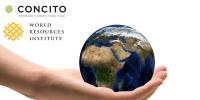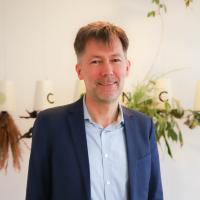CONCITO-WRI Strategic Partnership

CONCITO is Denmark’s green think tank. We convey new and proven climate solutions to politicians, companies and citizens in Denmark and beyond. WRI is a global think-and-do tank working in more than 50 countries around the world to advance solutions to climate change and other urgent issues at the nexus of environment, economic opportunity and human well-being.
Our strategic partnership will be led by a Head of Program based within CONCITO, enabling CONCITO to serve as a WRI hub for Denmark. Our joint work will focus on efforts that support sustainable development in developing countries, which may include contributions to global knowledge initiatives that benefit both the global south and the global north. From CONCITO's perspective, the partnership will help to strengthen the link between the Danish green transition and the best international knowledge and practice. CONCITO sees WRI as a perfect partner for connecting with the global learning curve.
Joint WRI/CONCITO activities may either be stand-alone or add-ons to existing programs and initiatives. Priority themes should 1) be of mutual interest to WRI and CONCITO; 2) represent areas where Danish experience and expertise can enrich WRI’s global initiatives; and 3) be aligned with the priorities of Denmark’s international development and climate cooperation. On this basis, the following priority themes have been identified:
- Clean energy transition with a focus on investment mobilization
- Sustainable cities and transport
- Sustainable food systems, comprising production and consumption, as well as food loss and waste.
Thematic focus area: The clean energy transition
The energy transition is key to achieving global climate change objectives and sustainable development goals. It is also a core element of sustainable urban development, in particular as regards buildings and mobility. This focus area is key to WRI’s work and will be developed in close collaboration with WRI’s Energy, Urban Efficiency and Climate Programs, as well as other teams of the WRI Center for Sustainable Cities, the Business Center and others as relevant.
Support for the energy transition is also a key theme in Denmark’s international development and climate cooperation. This issue is best approached in an integrated fashion, involving various stakeholders at both city and national levels and covering all or a subset of the following topics: clean energy supply, efficient buildings and energy systems, and planning. As a cross-cutting theme, specific focus will be on investment and private sector resource mobilization.
This approach will make it possible to harness synergies between 1) Denmark’s bilateral cooperation on energy, which most often works with national government counterparts; 2) WRI’s work at both city and various government levels; 3) Other initiatives including those being developed around the UN Climate Action Summit, C40 and others.
The Clean Energy Investment Catalyst is an initiative established by CONCITO and WRI in support of Denmark and other countries, cities and investors who wish to lead in the global energy transition and drive investments in clean energy in line with the 1.5 degree objective and the Paris Agreement as well as SDG7.
Thematic focus area: Sustainable cities and transport
Sustainable urban development and mobility is a key theme in Danish development and climate cooperation and constitute core elements of WRI and CONCITO strategic priorities. The theme covers sustainable mobility, urban planning, as well as urban efficiency and climate action that reduce pollution and congestion, improve health, and create safe, accessible public spaces for all people to thrive, and will often be closely linked to work on the clean energy transition.
Concrete opportunities for collaboration will be pursued between the WRI Ross Center’s for Sustainable Cities and the CONCITO Future Cities program.
Thematic focus area: Sustainable food systems comprising both sustainable food production and food consumption as well as food loss and waste
Nearly a quarter of all GHG emissions come from food production and associated land-use change. The sector is also key in ensuring the livelihoods of poor people in many developing countries. The transformation of food systems is not only crucial to mitigate GHG emissions and adapt to climate change, but also to promote enhanced food security and employment opportunities for the poor.
Concrete opportunities for collaboration will be pursued between the WRI work on Sustainable Food and the CONCITO Future Foods program.
